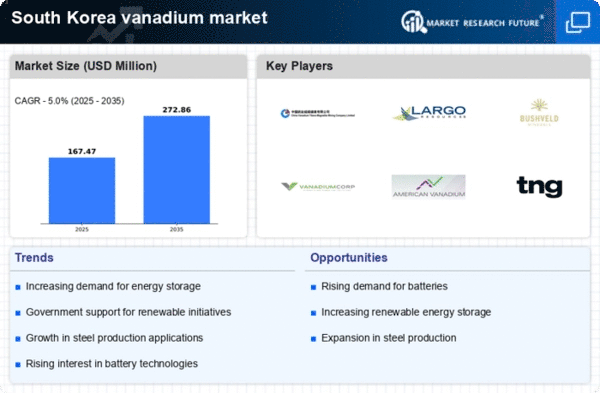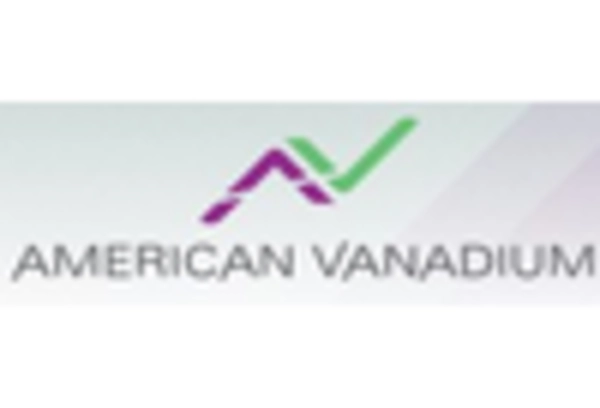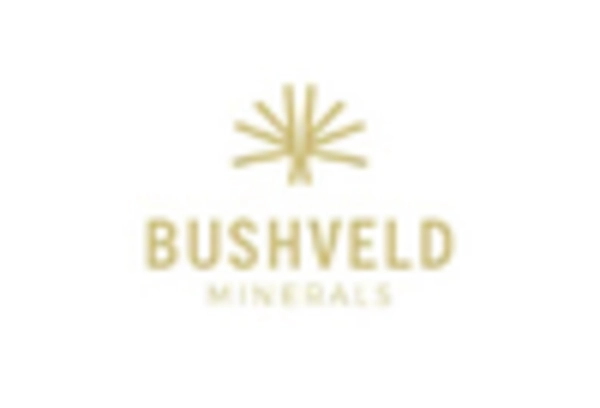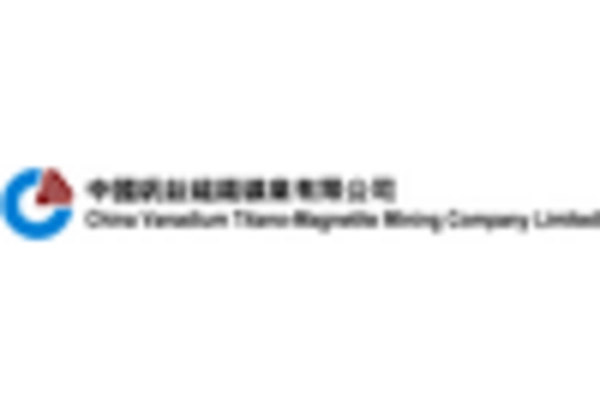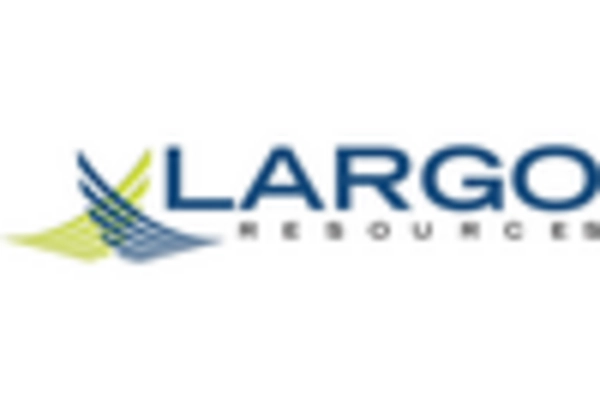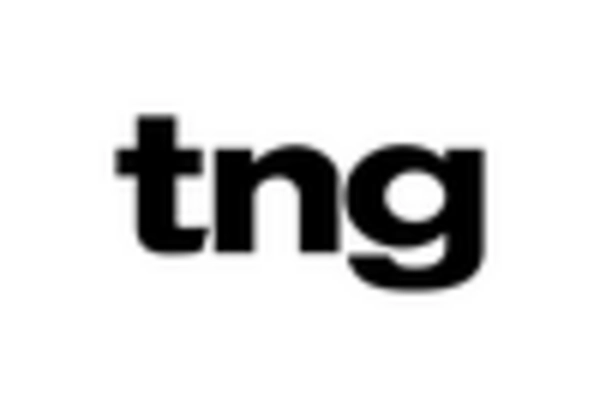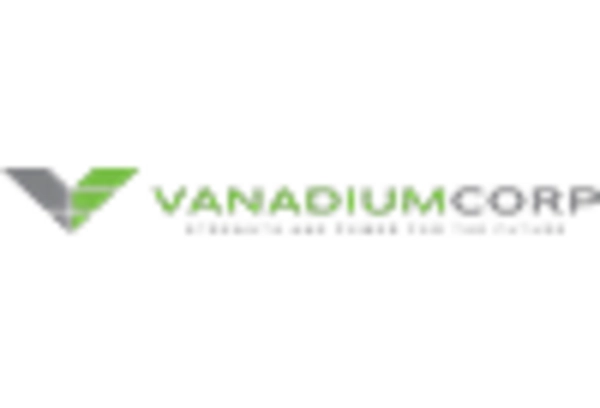The vanadium market exhibits a dynamic competitive landscape characterized by a blend of innovation, strategic partnerships, and regional expansion. Key players such as China Vanadium Titano-Magnetite Mining Company Limited (CN), Largo Resources Ltd. (CA), and Bushveld Minerals Limited (GB) are actively shaping the market through their distinct operational focuses. China Vanadium Titano-Magnetite Mining Company Limited (CN) emphasizes vertical integration, enhancing its supply chain efficiency, while Largo Resources Ltd. (CA) is committed to sustainable practices, positioning itself as a leader in environmentally friendly vanadium production. Bushveld Minerals Limited (GB) focuses on expanding its production capacity, which appears to be a strategic response to the growing demand for vanadium in energy storage applications. Collectively, these strategies contribute to a competitive environment that is increasingly driven by innovation and sustainability.The business tactics employed by these companies reflect a concerted effort to optimize operations and enhance market presence. Localizing manufacturing and optimizing supply chains are prevalent strategies, particularly in response to fluctuating global demand. The market structure is moderately fragmented, with several players vying for market share, yet the influence of major companies remains substantial. This competitive structure allows for a diverse range of offerings, catering to various segments within the vanadium market.
In October Largo Resources Ltd. (CA) announced a strategic partnership with a leading battery manufacturer to develop vanadium redox flow batteries. This collaboration is poised to enhance Largo's position in the renewable energy sector, aligning with global trends towards sustainable energy solutions. The partnership not only diversifies Largo's product offerings but also strengthens its market presence in the rapidly evolving energy storage landscape.
In September Bushveld Minerals Limited (GB) reported the successful completion of a major expansion project at its Vametco facility, increasing production capacity by 30%. This expansion is strategically significant as it positions Bushveld to meet the anticipated surge in demand for vanadium, particularly in the steel and energy sectors. The increased capacity may also provide a competitive edge in pricing and supply reliability, crucial factors in the current market.
In August China Vanadium Titano-Magnetite Mining Company Limited (CN) secured a long-term supply agreement with a major steel manufacturer, ensuring a stable demand for its vanadium products. This agreement is indicative of the company's strategy to solidify its market position through long-term partnerships, which may enhance its revenue stability and operational predictability.
As of November the vanadium market is increasingly influenced by trends such as digitalization, sustainability, and the integration of advanced technologies. Strategic alliances are becoming pivotal in shaping the competitive landscape, allowing companies to leverage shared resources and expertise. The shift from price-based competition to a focus on innovation, technology, and supply chain reliability is evident. Moving forward, competitive differentiation will likely hinge on the ability to adapt to these trends, with companies that prioritize sustainable practices and technological advancements poised to lead the market.


